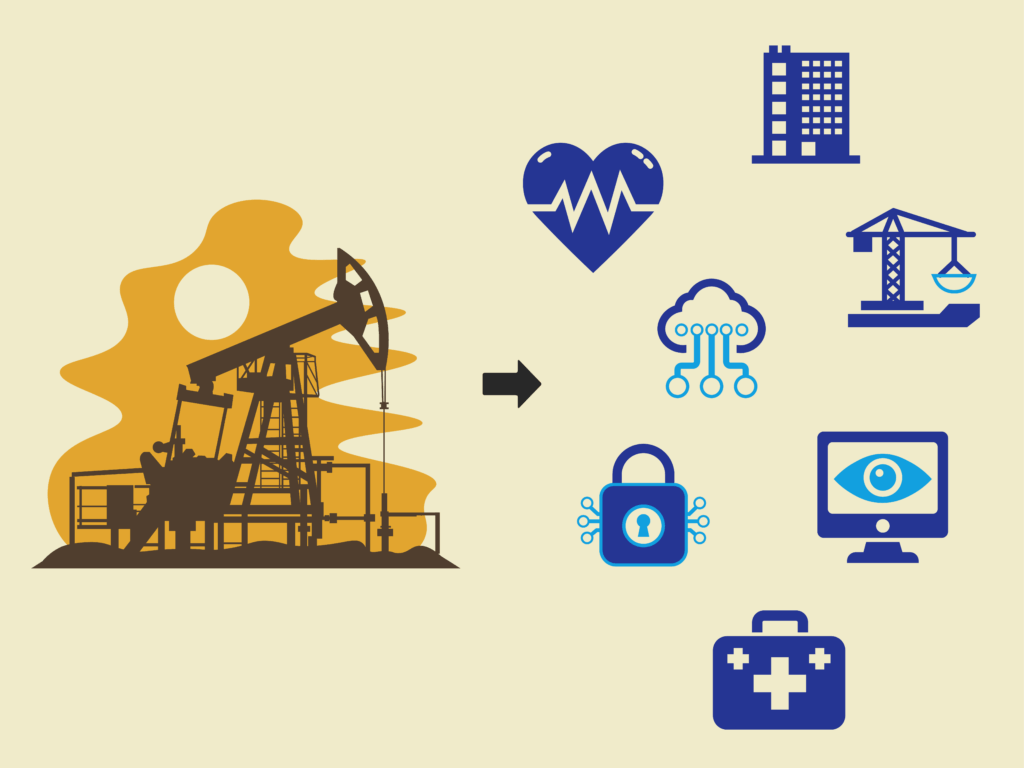
Getting to Where We Want to Go

Nancy Mellard was elected chair of The Council of Insurance Agents & Brokers at the annual Insurance Leadership Forum held in October.
As only the second woman in The Council’s 108-year history to hold the top position and the first to hold it as sole chair, Mellard shares what she thinks is needed for diversity to truly be “at the table,” which is non-negotiable, she says.
Mellard is also The Council’s first chair representing the employee benefits side of the business and is a former chair of The Council’s Employee Benefits Executives Advisory Committee. Our conversation covers the biggest challenges facing EB brokers, the changing talent paradigm, and what excites her about the future of the industry—“really, everything.”
This interview has been edited for length and clarity.
First of all, I don’t get exhausted very easily. I’m always on the move. I’m always trying to find new ways to get things done. I have a saying that is just to the side of my computer monitor that I see every morning which asks, “Am I the person I want to be today?” And particularly in the last 20 months with COVID, that really motivates me. I’m constantly asking myself am I doing enough, am I doing the right things. That motivation is good for me.
I also strive on servant leadership. I share that passion with my husband, Ken. That’s one of the things that I will always check myself on—am I doing what I should do from a servant leadership perspective. I learned that from my father. He instilled that in me when I was very young.
The way I look at it, when you list all those titles, it may have taken me a lot of years in my career to get to those places, but I like to think of myself as a constant learner and what comes with that seems to be a title. And I don’t care about the title as much as I care about what I learned along the way.
I think it’s a statement on the diversity, equity and inclusion position of The Council. I think that we are walking the talk, and I think that’s critically important. I got involved at The Council level because I looked around and there just weren’t women there at that time. Women today have to say to themselves, “I can do this.” As simplistic as that comment is, I know that I can do this. If we can’t convince ourselves, if we can’t truly understand that, then I don’t think that we belong at the table. I would say without a doubt the principal reason, as a woman moving into this chair position, is it really does highlight and spotlight and give The Council that very visible walk the talk of, “Yes, yes, we are about diversity.”
One thing I will live by is diversity at the table is non-negotiable. The concept of pipeline and the “Old Boys Network” must disappear from our behavior and our talk and then our walk. Recently, I was talking with some people about board positions. As you know, in a board position, there’s a pipeline which has been worked on for years. I think we’ve got to shift our paradigm on all of this if we’re truly going to get to the places that I know we want to go. I also know that it takes time to do what we haven’t done over the past couple of decades. But I think time is of the essence, and that concerns me. I don’t think we have the opportunity to use our history as an excuse for not celebrating what needs to be done.
I think there is a fresh, fresh look—not a different look, but a fresh look on what diversity, equity and inclusion is. Since we have a different vision, we also then have a different definition of talent. We have a different definition of experience. We have a different definition of timeline for not just women but minorities.
Remember the days when gaps in a résumé were looked at as a horrible thing? Well, gaps in your résumé now are an opportunity for an employer to look at diversity and say, “Talk to us about that. I see your degree. I see your experience. But tell me about that gap. What did you do [during that time] that you bring a fresh perspective to our organization that we don’t have from someone who doesn’t have a gap?” So I’m really excited about what I think diversity, equity and inclusion has done to really change the paradigm of what talent is in our organizations today.

“As a parent, you are able to go through major moments with a child—life’s milestones that you remember forever. As a child, you don’t traditionally have the opportunity to watch a parent have this type of experience, but I am so grateful and proud to have been able to be a part of your NYSE moment. As I said to your CBIZ female colleagues, I am the woman I am today because of you. Your hard work, dedication to yourself and your work is forever inspiring.”
It sounds a little bit like a cliché, but I do want to look back and say The Council is stronger and it’s stronger in part because of me and in part because I brought my leadership skills to it in a very different way. I hope that my position will be seen as a strong statement to everyone in this industry, that diversity and inclusion has got to be one of our number one priorities. And I believe you can have more than one number one priority, by the way.
What I would also like to do in that “maverick” kind of way is to see where we can take our relationships with our carriers and strengthen each other by sharing best practices on diversity and inclusion. They’re over here doing some really great things, and we don’t necessarily know what those are. We know what we’re doing over here as broker members because we come together as The Council and we talk about it. But I am never into recreating the wheel. So if we can take the relationships we have over here on the carrier side with what we have over here in the member side, I think we’re going to be twice as good.
We’re going to face more and more increased regulation. And that regulation, in my mind, challenges the benefits industry to look at more training instead of spending our time looking at product sales. By taking whatever the regulation is going to be in two months, in two years, we need to figure out how we can become more valuable to our clients through a consultative approach.
Of course, the other big one is transparency. And that’s transparency across all areas. It’s not just in the broker world, it’s not just in the pharmacy world, it’s not just in the provider world; it is across the board. We need to educate the consumer so they truly can understand, and we can only do that through transparency.
We have to bring more creative solutions to our clients that support their overall priority of the well-being of their employees. We no longer can talk about the well-being of our employees to be their problem. It is an employer’s problem because it is productivity and it is longevity.
Then there’s cutting-edge technology. We hear that all the time. But I think it increases clients’ efficiency, it reduces clients’ risk, and it controls their costs.
Nancy Mellard has been with CBIZ in Kansas City, Missouri, for nearly 30 years. Born and raised in Glasgow, Missouri, a small town along the Missouri River, she’s never strayed too far from the Kansas/Missouri state line (she earned her undergraduate degree at the University of Saint Mary in Kansas before jumping back over to Missouri for law school at the University of Missouri). Here, we pose a series of questions that may or may not tip the scales on her allegiances.
If you could pick which hometown sports team would win the next major championship, would you choose the Chiefs or Royals?
Do I have to pick?
Yes.
I want to say all three.
All three?
Chiefs, Royals or KU basketball. Andy Reid (head coach, Kansas City Chiefs), John Sherman (owner, Kansas City Royals), and Bill Self (head coach, Kansas University men’s basketball) have taken all three of these sports teams and done great things with them.
We’ll let it slide. Brisket or pulled pork?
I don’t like either. I live in barbecue country, and I’m not a beef girl. But I would take a really good piece of spicy chicken.
Jazz or country?
Country, hands down. There is a great history in Kansas City of jazz. But I am just a country girl.
In a previous interview with Leader’s Edge you said one of your dreams would be to play golf with Condoleezza Rice at Augusta. Why Secretary Rice? Why Augusta? And would you give her strokes?
I’d like to ask her, as we’re playing a round at Augusta, which would be fabulous, to give me her top three leadership tips. Because she, in my mind, is a role model for women who stay true to their values and their strengths. They know their values. They know their strengths. And they don’t lose sight of those as they go down their career path. I just think she’s like this silent giant. If you study her and how true she’s been to what she believes is important, it’s just spectacular. I think she is truly one of those role models for all of us, as women.
She sounds a lot like you.
What a great way to end. Thank you. This has been so fun.
But you didn’t answer the most important question. Would you give her strokes?
Umm, no. Absolutely, positively no.




